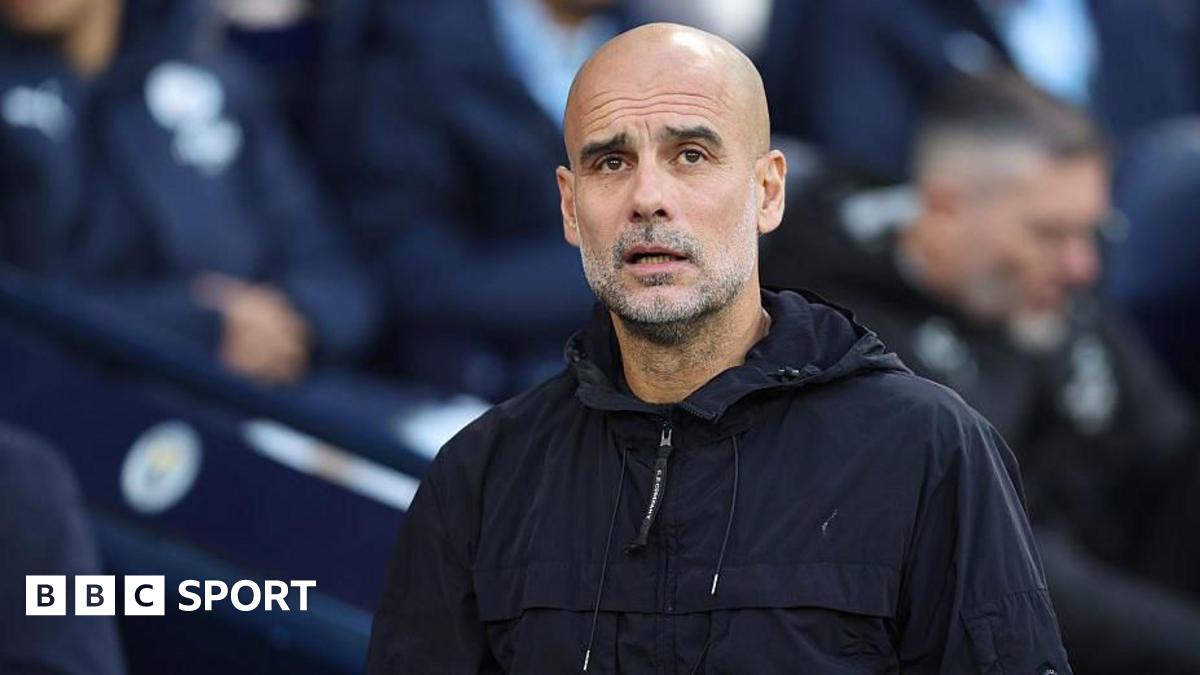Manchester City: Pep Guardiola says players will be weighed before Nottingham Forest game
Guardiola is known as a strict coach when it comes to player fitness levels and in 2016 exiled some of his squad from first-team training until they met certain weight targets.
Former City full-back Gael Clichy said Guardiola had told his players to avoid pizza, some juice and certain “heavy food”.
Guardiola previously apologised to Kalvin Phillips after saying the City midfielder was “overweight” on his return from the 2022 Qatar World Cup.
City are two points behind Premier League leaders Arsenal, who beat Everton 1-0 on Saturday, and face Forest before an away fixture at Sunderland on New Year’s Day.
Guardiola said he had no problem with his squad’s fitness or running, but they simply “have to play better”.
“The players asked me to have tomorrow’s [Sunday’s] training session off and I said no, because they didn’t play well enough,” Guardiola said.
“So Sunday recovery, train the guys that didn’t play, and after three days off they have two days to prepare for Nottingham Forest.”
Guardiola added that it was important for his players to spend time with their families over the Christmas period.
“I’ve learned from England, since I arrived, as much days [where you can] have a day off, you give them,” he added.
“The schedule is so tight and the players have to forget. The moment of the game they will be fresh in the legs.”
